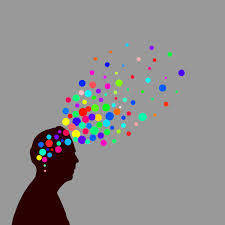
Last night I was driving home from a friend’s house. After stopping for a red light, I stepped on the accelerator to get in front of the car to my right because I had to make a right turn rather abruptly. As I got into my lane in front of him, he started flashing his lights at me.
This sort of behavior is uncharacteristic of the local folks who tend to be kind and generous, especially when it comes to road etiquette. And when he also turned right and continued flashing his lights at me, I told myself that his rudeness was probably due to the fact that he was an out-of-towner.
As I drove the remaining three blocks to my house, I was steaming; “How dare he,?” I thought. “Must be an ego-driven maniac,” I told myself. The more I thought of his aggressive response to my driving, the tighter the knot in my stomach became.
When I parked in front of my house, I noticed something interesting….
Although it was pitch dark outside, I was driving without my headlights!
Apparently, the guy was flashing his lights to alert me to the fact that I was driving without headlights! It was an act of kindness!
So much for the stories we tell ourselves about other people and the way these stories affect our feelings! And we do this all the time.
For instance, in a recent 2-day intensive with a couple, a man told me that he bought his wife flowers as a way of extending an olive branch after an argument. Although he didn’t feel the argument was his fault whatsoever, he still wanted to make amends; he didn’t like feeling distant from his wife.
When he handed her the flowers, she thought to herself, “He must really be feeling guilty about something.” Because of her negative thinking, she was lukewarm in her response to his gift which hurt his feelings and resulted in further emotional distance.
Here’s another example.
A husband I worked with was a CEO of a large company, his wife, a stay-at-home mom. They had 3 children, ages 10, 7 and 5. Their “division of labor” was fairly clear cut and traditional; he provided for the family financially, and she took care of the children and housework.
Then, seemingly out of the blue, the woman became very depressed. He assumed his wife was overwhelmed and stressed about her daily responsibilities. In an effort to help her feel better, he decided to “lighten her load” by taking more responsibility around the house. He started cooking, cleaning up after meals and helping with the children’s bedtime routine.
Over time, he noticed she seemed even more depressed. When I asked her about this, she said, “Once he started taking over my job, I realized how incompetent he thinks I am. And this just made me feel really badly about myself. I feel like I can’t do anything right.”
Although her reaction may seem strange to you, the truth is, every time something happens in our lives, we make up stories about why things happen and the nature of people’s motivations.
And here’s what I’ve noticed about couples.
If they’ve been spending enough time together nurturing their relationships, when something occurs, the meaning ascribed to that event is either neutral or positive. For instance, If the marriage is going along swimmingly and a spouse comes home late for dinner, the partner might think, “Poor guy, he must have gotten caught in traffic,” or “She’s been working such long hours, I really feel for her.”
If things aren’t going well in the marriage, that’s a different story.
Arriving late for dinner would probably prompt a spouse to think, “There he goes again, he is so inconsiderate,!” or “She never cares about my feelings. Never!”
Negative stories trigger negative feelings. Negative feelings trigger hostile or unkind actions. Unkind actions trigger further negative interactions. You get what I mean.
And the crazy part of all of this is that our stories are just that- stories, hypotheses, guesses. But not only does that stop us from believing our stories, but also being willing to fight to defend the legitimacy of our perspectives!
So what can we do about our tendency to make up stories about our partners, especially negative ones?
First, rather than assume you know why someone acts in a certain way, ask him or her rather than jump to conclusions.
Second, since we’re less likely to tell ourselves negative stories about our partners when our relationships are on solid ground, we need to spend quality time together, have meaningful conversations, and remain close physically. Feeling connected is, without question, the best antidote to believing the noisy skeptical voices inside our heads about the people we love.




